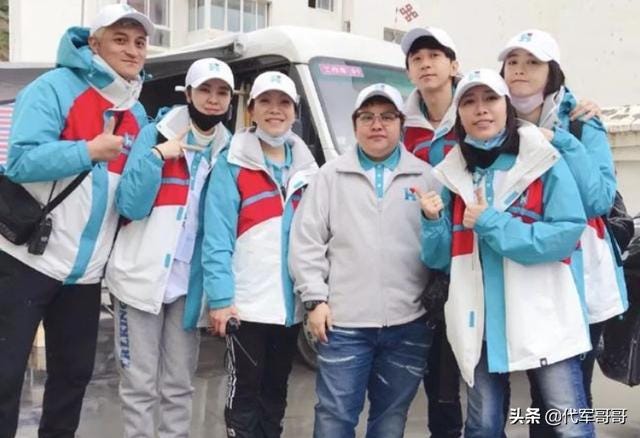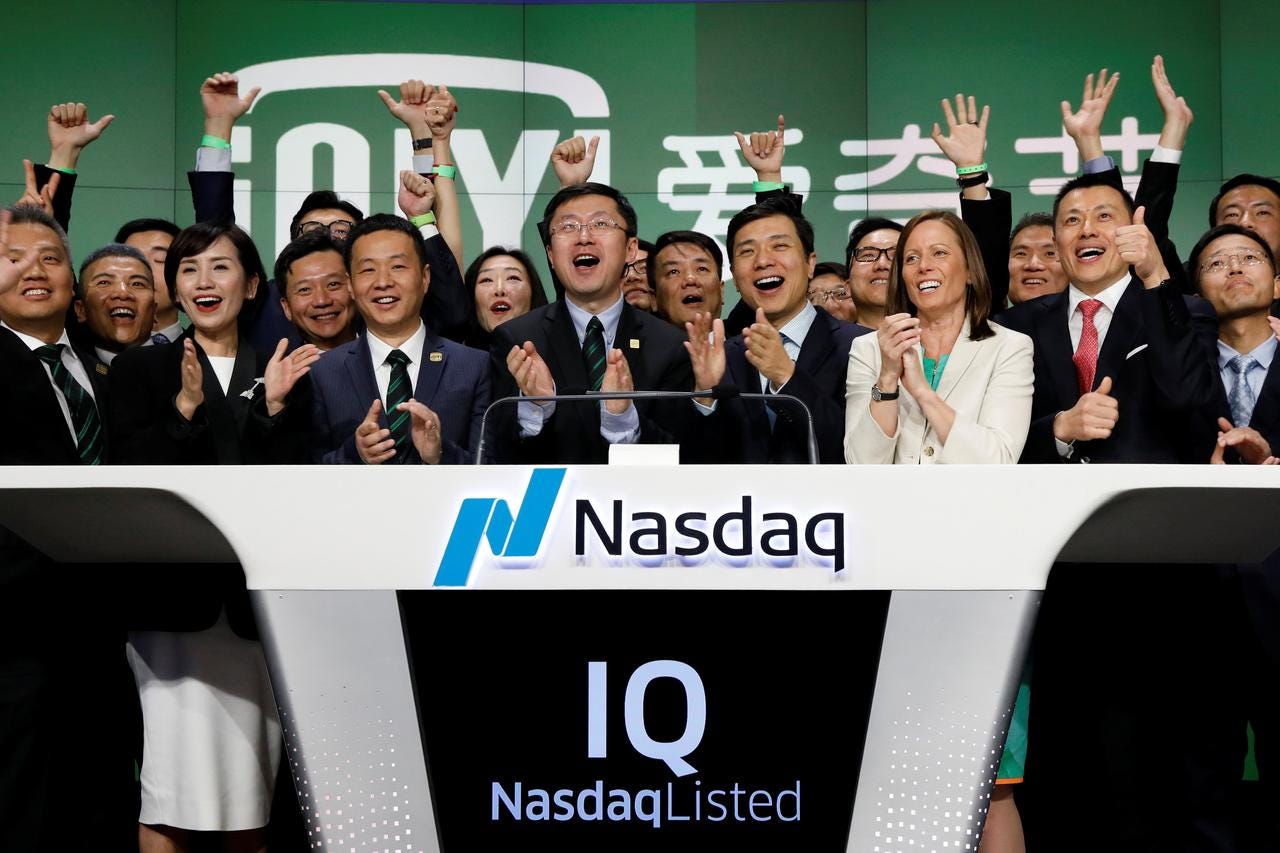The Changing Role of the Celebrity Amid a Global Crisis
Plus: iQiyi in the crosshairs, Sprite's “Unstoppable Thirst," and our Report Corner.

As the coronavirus has spread around the world, the culture of celebrities and influencers has seen an increased backlash in places like the United States, where many stars are seen as being out of touch with the realities faced by the vast majority of the population.
In China, however, celebrities have generally faced less public criticism, at least partly as a result of their rapid mobilization towards charity and relief efforts in support of the fight against the coronavirus. Given the outsize role that idols and influencers play in brand marketing in China, that’s good news for brands that work with celebrities in the Chinese market.
While overt promotional activities may have taken a backseat during the worst of the epidemic, the goodwill created by celebrities’ public service efforts will create long-term positive associations for the brands they work with.
In the early days of the outbreak in China, we saw a rush to make donations by leading stars (just as big companies did the same). They also engaged in creating inspirational content, such as public service announcements, documentary films, and the many so-called “charity songs” (with accompanying music videos) featuring top stars such as G.E.M., Kris Wu, Jacky Cheung, and Xiao Zhan.
As the lockdowns continued across the country, more celebrities shared their experiences at home through “cloud” variety shows and short video platforms, which allowed them to show previously unseen sides of themselves engaged in activities such as cooking and working out.
Some of the celebrities and influencers who have seen their profiles soar for their recent work include:

Han Hong: The popular singer soared to the top of February’s celebrity rankings thanks to her Love Charity Foundation, which raised more than RMB 140 million ($19 million) by January 31, posting all donations publicly on social media to improve transparency (an issue that has dogged the Red Cross in China). Han also shared a list of celebrity donors and delivered supplies to Wuhan herself, further boosting her reputation as a leader in the relief efforts. Han doesn’t fit the typical idol image and has worked with relatively few brands to date, but that could be set to change given her reputation nowadays.
Lay Zhang: The idol joined in the charity song trend with “It Will Be Fine“ (会好的), but added an interactive element by inviting fans to help write lyrics. After its release, the song became the most searched topic on Weibo, and posts about it have been read more than 560 million times. The young singer has been a favorite of fashion and beauty brands and has represented Calvin Klein, Chaumet, Converse, H&M, and MAC.
He Jiong: The television host starred in one of Hunan TV’s pioneering cloud variety shows, “Hey! What Are You Doing?” (嘿! 你在干嘛呢), which drew large audiences with its uplifting content during a time of crisis, offering glimpses into the home lives of celebrity guests. He is another low-key celebrity who has had relatively few endorsement deals in recent years.
Li Jiaqi: China’s “Lipstick King” took a break from e-commerce livestreaming during the early part of the coronavirus outbreak, instead using his platform to organize fundraisers and motivate the housebound to work out indoors. Li’s short break from e-commerce did not hurt his business at all, as he reportedly sold as many products in February and March 2020 as he did in the last six months of 2019. Most recently, he shared hosting duties with CCTV anchor Zhu Guangquan on a charity livestream sale to promote brands from Hubei (the province at the epicenter of China’s coronavirus outbreak), which drew more than 120 million viewers and sold RMB 40 million worth of goods.
Viya: Like Li, this top livestreamer suspended her normal sales-oriented broadcasts to focus on making donations and engaging in charity efforts such as a social media campaign and a live show collaboration with People’s Daily that highlighted the workers on the front lines. Now she is proving she can sell anything with her latest forays into real estate and a $5.6 million rocket.
That’s not to say that there haven’t been some major missteps. Some stars were called out drawing publicity to themselves during the crisis, such as Li Xiaolu, who sought to associate herself with Han Hong’s charity work, and Zhou Jieqiong, who drew harsh criticism for apparently paying to boost the rankings of a post about her health on Weibo.
Even stars who simply promoted their latest releases faced criticism — actors Diliraba and Vengo Gao were singled out for their Weibo posts about a long-awaited drama that they were starring in.
Meanwhile, outside of China, we’re starting to see more celebrities getting behind charity entertainment efforts. Next week, Pepsi will sponsor a star-studded show organized by the World Health Organization and advocacy group Global Citizen, curated by Lady Gaga and with appearances by a wide range of celebrities including Andrea Bocelli, Billie Eilish, David Beckham, Elton John, Lang Lang, Lizzo, and Paul McCartney. It will be broadcast on major networks as well as streaming sites Amazon Prime, Twitch, Youtube, and more.
Mentioned in today’s newsletter: Amazon, BMW, Bytedance, Calvin Klein, Chaumet, Converse, H&M, iQiyi, K-Swiss, Luckin Coffee, MAC Cosmetics, Net-A-Porter, Nintendo, Pepsi, Sprite, Tencent Video.
Will iQiyi Follow Luckin’s Spectacular Fall?

As Chinese video streaming has moved from ad-based models to emphasizing paid subscriptions, iQiyi (NASDAQ: IQ) has maintained a very slight lead over rival Tencent Video in that important metric, but a new report from an activist research firm alleges widespread fraud at the company involving user numbers, revenues and several transactions since iQiyi was spun off from Baidu and listed on Nasdaq in 2018.
In a 37-page report, Wolfpack Research compared iQiyi’s SEC filings to its subsidiaries’ credit reports that are on file with Chinese authorities and estimated that the company inflated 2019 revenues by as much as RMB 13 billion ($1.84 million).
The firm also interviewed more than 1,500 people to understand who subscribes to iQiyi’s paid streaming service and how — it found that nearly a third had obtained heavily discounted joint memberships through partners such as JD.com or credit card issuers.
Wolfpack alleges that iQiyi overstated user numbers by as much as 60%, along with the revenue it derived from paid subscribers, and then overpaid for content and to acquire other companies in order to balance its books.
iQiyi has disputed the claims. In a statement, iQiyi said the company “believes that the report contains numerous errors, unsubstantiated statements and misleading conclusions and interpretations.”
Wolfpack was assisted in its research by Muddy Waters, the firm that in January released an anonymous report outlining Luckin Coffee’s allegedly fraudulent activity, which is now the subject of an internal investigation into as much as $300 million in falsified revenues.
Following the report’s release, iQiyi’s share price fell as much as 17.2% on Tuesday before closing up 3%, and fell another 4.57% on Wednesday.
As was the case with Luckin, we could see a much bigger impact as a result of any follow-up investigations into the charges.
Should Brands Follow Net-A-Porter’s Animal Crossing Lead?

The wildly popular new release of Nintendo’s Animal Crossing gives players the opportunity to dress up their virtual avatars in style. In China, luxury e-commerce platform Net-a-Porter has become the first to monetize that opportunity.
Net-A-Porter is collaborating with Chinese designers such as Marchen, Calvin Luo, and Shushutong, who developed avatar skins from their Spring/Summer collections. Players may also buy the real-world outfits via Net-a-Porter’s Tmall flagship store.
Through their avatars, users can virtually wear aspirational brands that may be out of reach in real life but may wish to buy offline later. The gaming platform also offers a new space for advertising and brand exposure targeting millennial and Gen Z consumers.
Read more on Jing Daily, a CCI sister site.
Brand Film Pick: Sprite Aims to Quench Everyone’s Musical Thirst
Last month, Sprite announced a new set of brand ambassadors representing the diversity of China’s mainstream music scene. Indie 1990s rock band New Pants, up-and-coming rapper Lexie Liu, and singer-songwriters Mao Buyi and Hua Chenyu participated in Sprite’s latest campaign involving the creation of a “music label” debuting with the release of a brand song and accompanying music videos.
The song, “Unstoppable Thirst” (渴不停), is performed by each artist in their signature style, with music videos directed by Reggie Ba-Pe, a co-founder of the Shanghai-based Club Media. To connect directly with fans, the performers shared the videos to their individual Weibo accounts, and Sprite then reposted them to its official brand account.
Sprite also launched a promotional campaign through its Weibo account with teasers for the videos, interview clips and behind-the-scenes footage, which has been widely seen (its hashtag has drawn nearly 98 million views). Sprite also leveraged Hua Chenyu’s participation on the current season of Hunan TV’s reality competition “Singer 2020” (歌手) to place both the song and its products on the popular show.
The fan economy responded with enthusiasm: Hua Chenyu’s video saw the most activity, with more than 7.5 million views and a million-plus comments, followed by Mao Buyi’s, at 4.5 million views and 29,000 comments.
Both Hua and Mao shot to fame through singing competition shows — though neither fits into the stereotypical idol mold — and have enormous followings on Weibo (35.6 million followers for Hua and 16 million for Mao) . Meanwhile, the videos from Lexie Liu and New Pants have received less attention, with around 1.2 million and 700,000 views, respectively, roughly proportional to their followings, though some fans of New Pants have expressed dismay at the band’s recent commercialization.
Report Corner for Thursday

Tencent’s hold over mobile user attention has fallen from 50% in 2016 to around 43%, with much of the lost share being claimed by Bytedance’s news-oriented app Jinri Toutiao, according to WalktheChat’s 2019 Social Media Report
Tencent Marketing Insight and Boston Consulting Group’s China 2020 Social Retail White Paper notes the pervasiveness of the trend: More than two-thirds of Chinese consumers have shared links for shopping via social media.
The coronavirus update to the joint McKinsey & Company-Business of Fashion report on the state of the industry dives into the Chinese experience not only for its clues as to what will happen elsewhere, but also for the development of its own market.
News in English

Shopping through virtual reality: The upscale K11 Mall in Guangzhou is making it happen through a WeChat mini program that lets users buy as they browse through dozens of VR brand stores. Abacus
JD.com has been working with Chinese museums to offer virtual tours and experiences while they are closed, and giving them a much-needed revenue boost through online sales of souvenirs and cultural derivatives. JD.com Corporate Blog
A fashion influencer shares how she survived and thrived during the lockdown in Hubei province, thanks to livestreaming and brand partnerships. WWD
How digital experiences such as WeChat pop-up and virtual reality helped luxury brands through the coronavirus crisis. Techwire
Beijing art museum M Woods is also joining in the Animal Crossing frenzy by launching a virtual gallery within the game with featuring works by Andy Warhol, David Hockney and others. Radii
BMW’s latest brand film for China stars Jackson Yee and offers a hopeful message for all who survive the year 2020. The Drum
Douyin is reportedly testing two new features: One would randomly match users for video chats, the other would create a network of acquaintances. Pandaily
Sneaker brand K-Swiss’s Chinese ownership helped prepare it to face the global challenges emerging from the coronavirus. Footwear News
We’ve Got China Covered
China Film Insider: Will Live Streaming Change Bilibili?
Jing Daily: Chinese HNWIs Keep on Spending — But on What?
Jing Travel: Navigating the Crisis: Don’t Panic, Focus, Pivot, Communicate, Keep the Faith
We appreciate you subscribing and reading! If you like what we’re doing at CCI, please share with a friend or colleague, and as always, reach out anytime if you have a story tip, are interested in contributing, or to share feedback.


